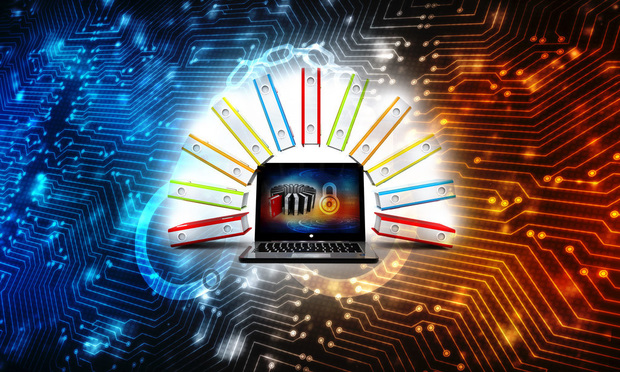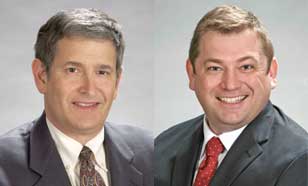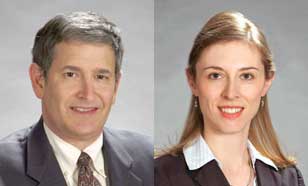David R Cohen

March 09, 2024 | The Legal Intelligencer
Generative AI in E-Discovery—Getting Beyond the HypeNowhere is that excitement and uncertainty more keenly felt than in the world of e-discovery. Yet, it is crucial to understand the ways that Gen AI is transforming the traditional e-discovery practice, and what lawyers need to know now to ensure smooth sailing ahead.
By David R. Cohen and Marcin M. Krieger
8 minute read

March 30, 2021 | Legaltech News
Create an App for That? Five Lessons We Learned from DevelopmentNot surprisingly, delivering an app is easier said than done. Reed Smith's E-Discovery App was introduced to the legal community in 2020, and firm partner and development team leader David Cohen shares his top five lessons learned.
By David R. Cohen, Reed Smith
7 minute read

March 23, 2021 | The Legal Intelligencer
A Practical Privilege Protocol: Addressing an E-Discovery IssueOf all of the tasks involved in complex litigation, few if any consume more time and money, while doing less to advance resolution of disputes, than the preparation of privilege logs. There is a wide consensus among members of the bar and the bench that privilege log reform is needed.
By David R. Cohen
7 minute read

March 24, 2020 | The Legal Intelligencer
Will the US Become a Haven for International Discovery Under Section 1782?Second Circuit and Eleventh Circuit rulings are likely to expand refuge to discovery in the U.S., even for international litigation and arbitrations that don't ordinarily include discovery rights.
By David R. Cohen and Bradley C. Whitecap
7 minute read

February 01, 2019 | The Legal Intelligencer
E-Discovery Document Review: 'COVER' Your Ethical DutiesLitigation document review can be one of the most time-intensive parts of litigation, and comprises a large part of the work performed by many thousands of attorneys, across the U.S. and beyond.
By David R. Cohen
8 minute read

February 05, 2018 | The Legal Intelligencer
'Things Just Couldn't Be the Same' After the 'Lynyrd Skynyrd' Spoliation DecisionMost lawyers know to advise their clients to preserve evidence in their “care, custody or control” relevant to pending or threatened litigation. But exactly how far does “control” go? Can a party be sanctioned for spoliation for failing to issue a legal hold notice to a third party who has no obligation to follow your legal hold instructions?
By David R. Cohen and Todd R. Fairman
8 minute read

February 07, 2017 | The Legal Intelligencer
Stay Clean in '17: 17 Tips to Do E-Discovery RightFor the last decade, e-discovery has been the new frontier in litigation. There is a lot that can go wrong in this complicated multi-stage process, at this point of intersection between legal obligations, advanced technology, and litigation strategy.
By David R. Cohen
20 minute read

January 27, 2015 | The Legal Intelligencer
Seven Barriers to the Use of Predictive CodingOn Feb. 24, 2012, Judge Andrew Peck issued his opinion in Da Silva Moore v. Publicis Groupe, 287 F.R.D. 182 (S.D.N.Y. 2012), the first case to approve the use of predictive coding in a litigation matter. Many legal commentators declared that this was a death knell for the use of traditional human document review to identify relevant documents in litigation.
By David R. Cohen and Marcin M. Krieger
8 minute read

January 27, 2015 | The Legal Intelligencer
Seven Barriers to the Use of Predictive CodingOn Feb. 24, 2012, Judge Andrew Peck issued his opinion in, 287 F.R.D. 182 (S.D.N.Y. 2012), the first case to approve the use of predictive coding in a litigation matter. Many legal commentators declared that this was a death knell for the use of traditional human document review to identify relevant documents in litigation.
By David R. Cohen and Marcin M. Krieger
8 minute read

January 20, 2015 | The Legal Intelligencer
Using Discovery Mediators to Streamline ADRThe proliferation of electronically stored information in our everyday lives has resulted in a multibillion-dollar electronic discovery industry. In the face of discovery expenses, attractions of alternative dispute resolution include the hope to resolve disputes at lower cost and in less time than traditional litigation, but also to achieve just results.
By David R. Cohen and Courtney Murphy
7 minute read
Trending Stories
- 1Will Khan Resign? FTC Chair Isn't Saying Whether She'll Stick Around After Giving Up Gavel
- 2Wrongful Death Case Against Adult Daycare Sparks Call for State Regulation
- 3Attorney Claims He Was Denied Firearm Carry Permit Because of His Views on Middle East Conflict
- 4Judges’ ‘Unretirements’ After Trump's Win Spark Dubious Ethics Complaints
- 5High Court Revives Kleinbard's Bid to Collect $70K in Legal Fees From Lancaster DA
More from ALM
- Scan In Progress: Litigators Leverage AI to Screen Prospective Jurors 1 minute read
- Legal Speak at General Counsel Conference East 2024: Match Group's Katie Dugan & Herrick's Carol Goodman 1 minute read
- Legal Speak at General Counsel Conference East 2024: Eric Wall, Executive VP, Syllo 1 minute read



